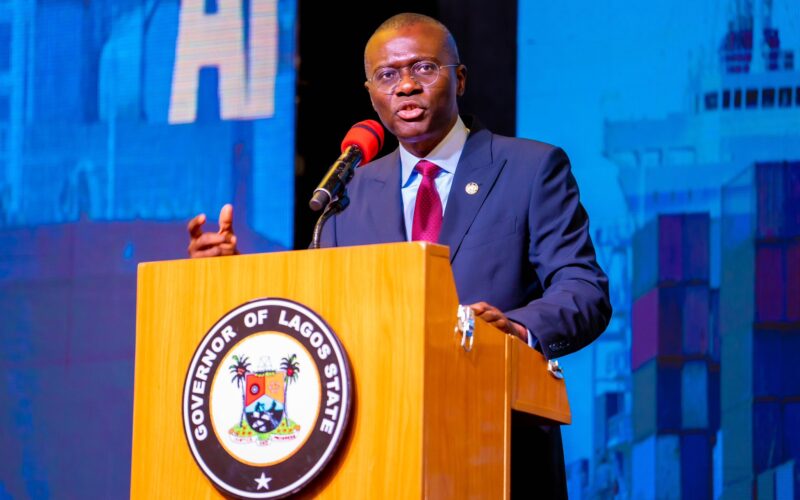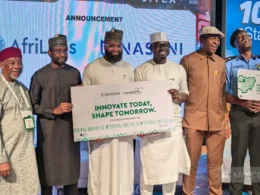The Lagos State government has unveiled an ambitious plan to generate N200 billion annually by expanding its income tax base to include remote workers and leveraging digital solutions for enhanced revenue collection. This initiative represents a strategic move to tap into the burgeoning digital economy, ensuring that Lagos State remains at the forefront of economic innovation and growth. The plan highlights the government’s commitment to diversifying its revenue streams and enhancing its financial stability by embracing modern technological advancements.
According to the synopsis document for the EKO Revenue Plus Summit, which is expected to be held on September 25th and 26th, 2024, with the theme “Unlocking New Revenue Streams for Lagos State,” this southwest state plans to raise N5 trillion in internally generated revenue (IGR) from four major sectors. This summit is set to be a landmark event, bringing together key stakeholders from various industries to discuss and strategize on the future of revenue generation in Lagos. The focus on new revenue streams underscores the state’s proactive approach to addressing fiscal challenges and capitalizing on emerging opportunities in the digital era.
One of the primary sectors targeted is the digital economy. Lagos State plans to introduce a Resident Global Digital Citizen Tax Management System, specifically targeting remote workers, foreign firms, and digital influencers. This innovative system aims to capture revenue from the growing number of individuals and entities operating within the digital space, who have previously been outside the traditional tax net. By formalizing and regulating this sector, Lagos State seeks to create a more inclusive and equitable tax system that reflects the realities of a modern, interconnected economy.
This system will also involve the accreditation and licensing of digital economy operators, supported by a robust platform that includes an e-Portal, Market Place, and a Recovery Platform. These components are designed to streamline the tax collection process, making it more efficient and user-friendly for taxpayers. The e-Portal will serve as a central hub for all digital tax-related activities, while the Market Place will facilitate transactions and services within the digital economy. The Recovery Platform will ensure compliance and aid in the enforcement of tax obligations, further enhancing the system’s effectiveness.
According to the synopsis document, the initiative’s estimated budget is N250 million, which will cover portal construction, data mining, partnerships, stakeholder engagements, and communications. This comprehensive approach ensures that all aspects of the system are adequately addressed, from technological infrastructure to public awareness and stakeholder buy-in. By investing in these areas, Lagos State aims to build a robust and sustainable framework for digital tax collection that can adapt to future developments in the digital economy.
The southwest state aims to generate N200 billion annually from about two million people in this area. This ambitious target reflects the state’s confidence in the potential of the digital economy to significantly boost its revenue. By tapping into the vast and growing pool of digital workers and businesses, Lagos State hopes to create a new and reliable source of income that can support its development goals and improve public services for its residents.
Digital economy sector plan.
Lagos State has also set other ambitious revenue targets within the digital economy sector. The digitalization of government services and data monetization is one key initiative. Lagos State plans to develop a public data marketplace to license and monetize data from various government services. Key components of this initiative include the Lagos ProveIT App and the Lagos State Document Validation and Authentication App. The initiative will cost N500 million and potentially generate N50 billion per year, demonstrating the significant financial potential of digital data and services.
In addition, Lagos State plans to establish a fintech hub to support digital payments, mobile money, lending, and crowdfunding. Lagos State has allocated a budget of N5 billion for the Fintech Hub, projecting an estimated annual revenue of N100 billion from vendor transaction fees and platform services. The fintech hub aims to position Lagos as a leading center for financial technology innovation, attracting businesses and investors from across the globe.
Another initiative is the Lagos State Software Development Center, which will focus on developing software solutions for finance, SMEs, and retail sectors. With a budget of N500 million, this center aims to generate N150 billion annually from subscriptions and service fees, further highlighting the state’s commitment to leveraging technology for economic growth and diversification.
Read also: Lagos unveils N1 billion seed fund to nurture tech startups.
The Lagos State Digital Economy Acceleration Hub is another key project, involving the selection and development of 100 innovative startups through a hackathon and subsequent support. The state expects this initiative to generate N100 billion per year from profit-sharing models, with an estimated cost of N12 billion. This project aims to foster a vibrant startup ecosystem in Lagos, encouraging innovation and entrepreneurship among the state’s young and talented population.
Moreover, the Lagos State Advertisement Network will create a state-owned advertisement network and approval management platform. With a budget of N500 million, the projected annual revenue from this initiative is N15 billion from income fees and permits. This platform will streamline the advertising approval process and create new revenue opportunities for the state.
Lagos State also plans to implement a Blockchain and Tokenization Agenda, which involves the tokenization of real estate, infrastructure, and intellectual property. This project will require N500 million and aims to generate N100 billion annually from income fees and permits. By embracing blockchain technology, Lagos State seeks to enhance transparency and efficiency in these sectors, attracting more investments and boosting revenue.
Furthermore, Lagos State will collaborate with the Federal Government of Nigeria on the Digital Service Tax (DST) initiative, which aims to generate revenue from global digital platforms operating in Nigeria. The state has budgeted N750 million for this collaboration and projects it will bring in N50 billion annually. By working together with the federal government, Lagos State hopes to create a more comprehensive and effective tax framework for the digital economy, ensuring that all stakeholders contribute their fair share.
Overall, these initiatives reflect Lagos State’s commitment to harnessing the potential of the digital economy to drive economic growth and development. By implementing these innovative projects, the state aims to create new revenue streams, improve public services, and ensure sustainable growth for the future.












